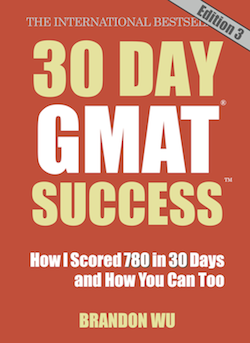How Not to Infer an Inference
The last time we talked about reading comprehension, we focused on questions that are really asking why, as opposed to asking what. Another type of question word that we need to make sure we understand correctly is the word inferred. Inferred, along with its tricky friends suggested and implied, tends to make our minds wander away from the information in the passage on the computer screen and out to somewhere in the real world. And that’s why we get these questions wrong. The key to doing well on questions of the infer, imply, and suggest variety is remembering that the correct answer will always be supported by the text. Let’s look at the passage on page 392 of the Official Guide (13th Edition) as an example.
Questions 65, 67, and 68 all use the word inferred. We need to find out what the passage says explicitly about the subject of each of these questions and then find answer that matches.
Question 65 talks about the isotope record of ocean sediment. These key words aren’t very helpful to finding the location of the answer to this question since the whole passage is about the isotopic record. Instead, let’s use the words “less useful.” The third paragraph talks about the advantages of the isotope record of ocean sediment, so that’s where we want to look for information about its usefulness. The two advantages cited in that paragraph are that has little variation and is a continuous record. Since those are advantages, if either of those were not true, it would be “less useful.” Let’s look at the subject of each answer to see which are direct opposites of those benefits.
A) Lighter isotopes of oxygen
B) More gaps in its sequence
C) Climate shifts
D) Compares ocean water to fresh water.
E) Only a million years old
Answer B is the only match. The cited benefit is a continuous record, so gaps would make it less beneficial. Even the official explanation quotes this line. In fact, if you look at the explanations to all of these questions in the answer section of the Official Guide, you will notice that each answer says that “Any inference…needs to be based on what the passage says.” Keep that in mind. An inference in real life is not the same as a GMAT inference. Always looks for the answer that is stated directly. Let try two more.
Question 67 focuses on precipitation from evaporated ocean water. The answer is clearly stated in lines 20 through 23. These lines say that heavier isotopes are left behind during evaporation, so the non-evaporated water has a lot of oxygen 18. This is means that the evaporated water that becomes precipitation must have less oxygen 18 since it was left behind. This is exactly what answer B says. Answers C (continental ice sheets), D (water on land), and E (oxygen 16) all have the wrong focus. Answer A can be eliminated just by reading carefully.
Question 68 focuses on calcium carbonate shells, which are discussed in lines 24 through 29. According to that part of the paragraph, the shells contain oxygen atoms from the surrounding ocean water. Reading backwards through that sentence, we learn that the enrichment levels (of oxygen, as stated in the preceding sentence) can be determined from analyzing the sediment created by those shells. If you haven’t already learned from answering previous questions that the oxygen enrichment referred to and the isotope record are the same thing, you may have to read further back in the paragraph. But if you do already know that, then the answer is definitely E. Again, the other answers focus on subjects that are not relevant to the question. A focuses on deterioration, B on a comparison to ice age sediment, C on ice, and D on radioactive material. None of those were discussed in the lines that talk about calcium carbonate shells, but we do have clearly stated proof in the passage for answer E.
Notice how we did not read the whole passage ahead of time to answer these questions. Instead, we skimmed the passage looking for key words from the question. This can be a useful strategy for saving time. Of course, if you have a primary purpose or main idea question first this may not work as well, but inference questions do not require knowledge beyond the immediate subject of the question.
Want more information? Check out the Reading Comprehension section of my 30 Day GMAT Success book!
Image courtesy of Artotem with Creative Commons License.

